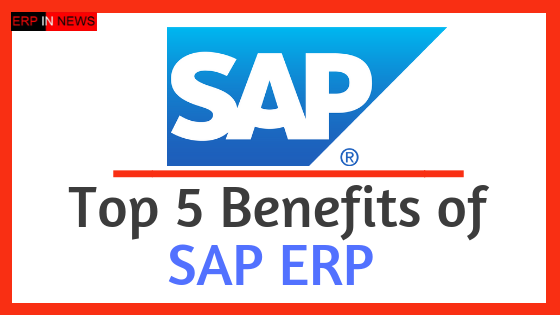Do you have a small business that requires communication between many different departments? If the answer to this is yes then you would be wise to invest in SAP ERP Software. There are many reasons for wanting to invest in this software, some of those being reduced costs, better communication and better use of time.
What do SAP and ERP stand for?
- SAP stands for Systems Applications and Products in Data Processing.
- ERP stands for Enterprise Resource Planning
This basically means that SAP is a type of ERP Software.
What does SAP ERP Software Do?
If you own a manufacturing business on a decentralized system then that would mean that all the different departments within your business would not have access to all of the information from the different departments. SAP ERP is a centralized system; this is the opposite of being decentralized. Having a centralized system means that all department within your company will be able to access each other’s data quickly and efficiently.
So by way of example, if a customer was to call and ask for raw materials you would quickly be able to access real-time data which informs you of availability and if it is not available it would also move the department responsible to make orders and that then would be updated on the centralized system. That means that the sales team can respond to the customer’s request on time. This is where you will see an increased revenue and good customer satisfaction. The sales team would then update the centralized system, so that all the departments remain informed about the product status. The production planning department is automatically updated by the centralized system for requirements. The production planning team checks the availability of the raw materials required via the central system, which is updated by the inventory department. Thus, data duplication is avoided and accurate data is made available. The shop floor team update their man power status regularly in the central system, which can be accessed by the HR department. In case of shortage of workforce, HR team starts the recruitment process with considerable lead time to hire a suitable candidate at market price, this will help to reduce labor costs. Vendors can directly submit their invoices to the central system, which can be accessed by the finance department, this ensures all payments are made on time and avoids possible legal action. The success of any organization lies in effective communication, and data exchange, within these departments, as well as associated third party such as vendors, outsourcers, and customers.
What are some benefits of the SAP ERP Software?
Looking at the example above you can see that using SAP ERP Software eliminates the duplication, discontinuity, and redundancy in data. It provides information across departments in real time and it provides control over various business processes. It will increase productivity, give better inventory management, it promotes quality, reduced material cost and effective HR management. The Software reduces overheads and boosts profits. It will enable better customer service and relationships too.
